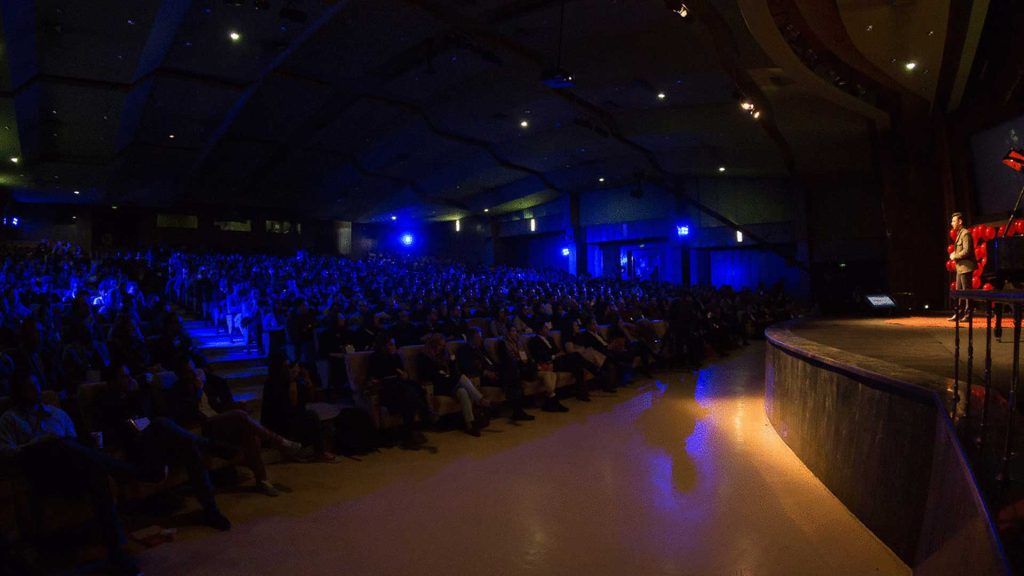Undoubtedly, It must have occurred to many of us to listen to someone’s public speaking or be invited to talk on your own. As the organizer of the TEDxTehran event in which public speaking techniques and rhetorical skills have profound impacts, also as one of the most active members of Iran’s innovative and entrepreneurial ecosystem that involves a lot of speeches, I’ve had roles of both a speaker and a listener. As a summary of all these experiences, I’d like to write a couple of lines for you about lecturing and its importance in contrast with the common belief. I want to state clearly that:
Public speaking and rhetorical skills are trivial; a lecture’s impact depends on other factors.
Reza Ghiabi
But what sparked starting this article in my mind was publishing two of my talks on the internet, especially on Linkedin, and reading the comments and the questions I was asked. The first one was my talk in English at TEDxCannes in France, with the title of: “Start with what you have!”, and the second, my lecture in the Tehran Creative Morning event with the title of “Anxiety.” In both cases, I’ve faced comments and questions like: “Perfect voice and talking, best of luck!”, “Your voice is perfect for public speaking and performance”, “Your voice is perfect and it deepens the color of your content”, “Voice is one of your most tangible strength points”, “what a suitable dress you’re wearing!, Is there an code on how to wear in such occasions?”, “ How can I learn to have a speech like you?” and so on.
Reza Ghiabi: Anxiety | Creative Mornings Tehran
Since I feel responsible for all the people who want to learn to have better lectures and asked me if I teach it or not, and on the other hand, worrying that it might lead people to sometimes commercial programs such as “self-confidence boosting conferences” etc., I find it necessary to explain this issue and let the audience judge the content.
Our brain loves to simplify, but it’s not always in our best interest!
The main reason that those comments and questions were asked, was because most of the people, especially in the current Iranian society, seek the shortest path to success, which means that when they see a talk that seems excellent and successful, they start looking for the quickest way to have the same kind of talk and be (so-called) successful. They also feel that knowing the public speaking techniques is the key to have such lectures, though it’s only simplifying the issue if we think: “there must be a public speaking technique that some have and we don’t or a voice that some possess and we don’t, and that’s why everyone accepts their talk”.
And so there are speakers that when they start talking about a subject, they elaborate with such pomposity that the audience becomes fond of the speaker, and so they reach what they have planned for, but when they talk about another subject, they face the audience leave the hall yawning, with only an early cheers from them. And on the other hand, there were lecturers such as Winston Churchill, the famous British prime minister, who was afraid of talking to ten or fifteen people and was embarrassed, but with a lot of training, he reached the point to have some the most important lectures of history for thousands of people. So it can be concluded that firstly, the art of lecturing is acquisitive and depending on the psychological conditions if the person is not able to give lectures. They can be instructed. Secondly, talks have different qualities from subject to subject, and depending on the speakers’ interests and concerns: it can be awful or excellent. And so no one’s speech about cancer can be as effective as a mother whose child is suffering from the disease. So, in the beginning, never let anyone misguide your mind that you can have a speech about any topic only by learning some basic principles.
All of the rhetorical rules and public speaking techniques are made in order to show the speaker as someone self-confident, dominant on the subject, comfortable and intimate with the audience. So why any of these is needed if the speaker is really dominant on the subject, concerned about it, in love with the audience and feeling a great urge to share the matter with them.
Reza Ghiabi
Just like any other phenomenon, public speaking has a body and a soul.
According to how the late Mohammad Ali Foroughi defined in his book “
Here I find it necessary to talk about this point, that as mentioned above, rhetorical skills are like a body and framework that can be developed using some pieces of training such as improving word memory, correct breathing, improving voice quality, etc. but until the soul is not inside that body, the audience will not be incited, and even if they’re incited by excitement, after a while they’ll forget the matter and might also feel regretful of how they’ve felt by hearing that talk, just like a plate of steak with rhetorical skills as its dressings.
“There has to be more focus on the main topic, and what the speaker has to tell” just like how meeting a tall, handsome man always feels pleasant until he starts talking nonsense. Focusing too much on the body of public speaking feels just like that, and it has become the very challenge that our Iran is struggling with today. People who talk well, wear suitably, and sit well in their place, but have nothing to say and when we listen more carefully, they’re just another silent note in the silence. That’s the main reason that we witness such conferences for extending brain capacities, energy absorption, self-confidence increasing, etc. which in my opinion, they’re not valid for the long term because it doesn’t activate these matters deeply in people and is a lucrative point for businesses.
Here I want to note that being energetic is different than having charisma. Aside from the definitions that can be brought upon for these two concepts, I believe that the real charisma that can make the speech have more impact can only be obtained by talking about what we have done and by the clearance of our vision.
Now, what should we do? How to be a good public speaker? And an aware listener?
As mentioned above from Mr. Foroughi’s definition of lecturing, the main point of talking is inciting the listener, meaning that in the end, the speaker asks for something from the audience. In my opinion, the first condition of becoming an aware listener is to see: “how much benefit does it have for the speaker? (and not only financially).” This might be a very complicated thing such as urging them to buy stock exchanges in installment or a straightforward one, like pushing the follow button on Instagram. Anyway, as an aware listener, It’s necessary to know what intention makes the speaker talk? That’s why I always check if the speaker has been paid for the speech or not? Is his address a part of an advertising campaign? Does he talk solely for his benefit or consider my interest as the listener as well? Does he respect the audience’s time? And above all, does he have something to tell or at its most, it just entertains me, and in the end, he shows off his speaking abilities in social media with a picture of himself doing what he does best: speaking!
On the other hand, we must know and be aware, it’s possible to learn to speak, but just like the art of cooking, no matter how many cooking books and recipes we read, we can’t become the real chef, if we’re not hungry and passionate about food. And by passion, I don’t mean the love for speaking, but enthusiasm for a particular subject and sharing it. So the most probably, the sound speaker has to be great at what he talks about in his own life. So after the main concern and the soul of the speech is clear to us, we go after rhetorical skills and public speaking techniques and use them as dressings and not the main dish.
This article about public speaking originally has been published in Farsi at Reza Ghiabi’s LinkedIn Pulse and has been translated into English by Ali Ahmadi.




